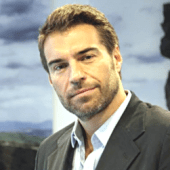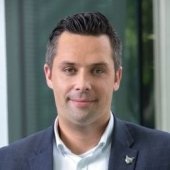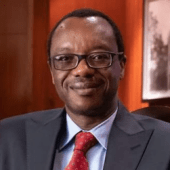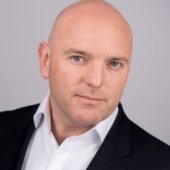Quan CEO: Business leaders be warned, employees are empowered and have more options than ever
IN BRIEF
- Workers see newfound flexibility as a perk that could be taken away. If they were able to work fully remote for two years, they’re asking why that can’t continue.
- For many employees, the last two years have been about introspection. Those who took the time will benefit because they're going to make better decisions about the kinds of organizations they want to work for and the type of work they want to do.
- What will be valued in employees is the ability to work well with one team, disconnect, and then work well with a completely different team; a workers’ ability to learn and assimilate quickly will be an in-demand skillset.
Arosha Brouwer is Co-Founder & CEO at Quan, a Netherlands-based software company focused on employee well-being. Brouwer believes in a future where “individuals don’t join companies, they join causes, and employees will increasingly use their talents to contribute to projects that they find meaningful.” Prior to Quan, Brouwer spent 15 years engaged in ventures and projects relating to innovation, digitization and new ways of working. She’s led projects in several industries in both the private and public sectors. Brouwer sat down with Joe Kornik, Editor-in-Chief of VISION by Protiviti, to discuss what the workforce of the future wants and how business leaders can make sure they’re meeting their needs.
Kornik: Before we start talking about the future and where we’re going, I think we need to begin with where we are and where we’ve been because I think it colors everything going forward. So, let me ask: How are we doing? And how do you think what we’ve gone through the last few years will impact the workforce of the future?
Brouwer: Those are such good questions. There’s so much to unpack but let’s start with how we’re doing: I think people are exhausted and all the statistics are showing us that the burnout numbers are escalating, especially in the U.S. Globally, we know that COVID has had a huge impact on people’s mental health. So, there are a lot of layers to this. From a work perspective, we’ve seen the acceleration of remote and hybrid work and all that this entails. In the past, people would go to work and leave their personal lives at home. But now we've seen this profound change where work is home and home is work. On the flip side, working remotely has also been very empowering to employees. And as a result, when companies try to mandate people go back to the office, we're seeing employees fighting back. Workers see this newfound flexibility as a perk that can be taken away, and they do not like it. If they were able to work fully remote for two years, they’re asking why that can’t continue. They've seen that it can be done on their terms, and they're demanding it stay that way.
Kornik: That’s been a real shift for sure. How do you see this playing out? Do you think how employees work will evolve organically or will they try to dictate working models?
Brouwer: I think we’ll see both. Interestingly, more forward-thinking companies are recognizing this trend and are trying to capitalize on it by expanding outside their local talent pools. They can source talent, in some cases, globally. But that’s not everyone, of course. I think it's going to be important for any organization to constantly keep a pulse on the noisiest 10%—the employees who are generally not happy. And even though we think they’re just 10%, we know their thinking is reflective of a lot more of the workforce. These are the ones that are going to leave the company if leadership isn’t responsive to their needs. So, I think keeping a pulse on them is super important.
working remotely has also been very empowering to employees. And as a result, when companies try to mandate people go back to the office, we're seeing employees fighting back.
Kornik: Right. “The Great Resignation,” as it’s commonly called, has probably been building for a while, but the pandemic accelerated it. What do you think that’s about?
Brouwer: For workers, just being part of a good company is no longer enough. Employees have spent the last few years evaluating what makes them fulfilled and, generally, those things have shifted for many. The last two years have been about introspection. The happiest and most engaged employees are the ones who have a better understanding of themselves, and then choose companies and work that align with their goals. It’s resulting in lots of people leaving their jobs. I think that's one of the fundamental themes that’s emerged from the pandemic, actually. There’s a well-known statistic in HR circles: 80% of people are disengaged at work. Imagine that? If you dig a little deeper, you find that a lot of people who are working 40 hours a week are really only engaged for about 20 hours a week. And what you're seeing is people are saying: ‘Hey, maybe I want to do one thing here, but I also want to do another thing over there.’ That might mean a different role in the same company or that might mean a completely different career. And that’s a big part of what’s behind the emergence of the ‘gig’ economy. People wanting to work on new things all the time, things that excite them.
Kornik: Let's talk about the capabilities those workers need to succeed. What skills do you think will be in the highest demand over the next decade?
Brouwer: I would say creativity, emotional intelligence, and the ability to collaborate and coordinate with others are going to be in high demand. Also, it's my belief we’ll see lots of networks of teams. So what will be valued in employees is the ability to work well with one team, disconnect, and then work well with a completely different team. So, a workers’ ability to learn and assimilate quickly will be an in-demand skillset, for sure. And then who will lead those teams is something completely different. The best leaders will constantly be thinking about how to facilitate and motivate teams. In the future, effective leadership will be about putting the most amazing, brilliant minds together to collaborate and then empowering them to succeed.
Kornik: I want to ask you to look out a little further. Do you have any bold predictions, or any ideas of how different things will be in 2035? Where do you think we’ll end up?
Brouwer: If you look at how much digitization has accelerated over the last couple of years, I think this automation trajectory will continue well into the future. Which means from a workforce perspective, there's probably going to be a lot of jobs that will be automated, which means there will be more space for humans to be creative, to be innovative and to do different types of work. In addition, I would say for the last 20 years, there’s been such an obsession on the customer. And that made sense, of course. But I think we’re headed for a shift where companies will start to see the value of their own people. I think companies will become “employee obsessed.” You’ll see companies become obsessed about the tools they provide, the environment they provide and the working models they provide their own people to ensure success. That’s a real shift we’ll see in 2035.
creativity, emotional intelligence, and the ability to collaborate and coordinate with others are going to be in high demand.




























